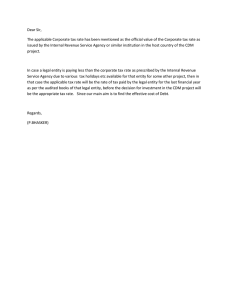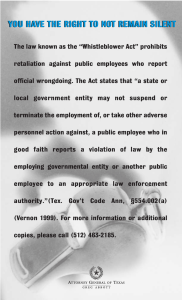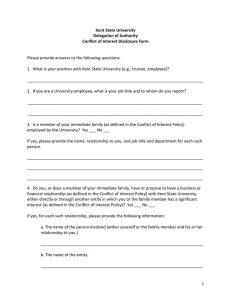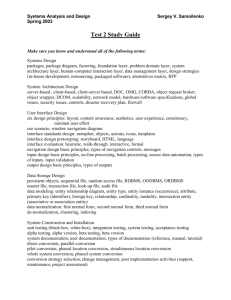Achievement Standard
advertisement
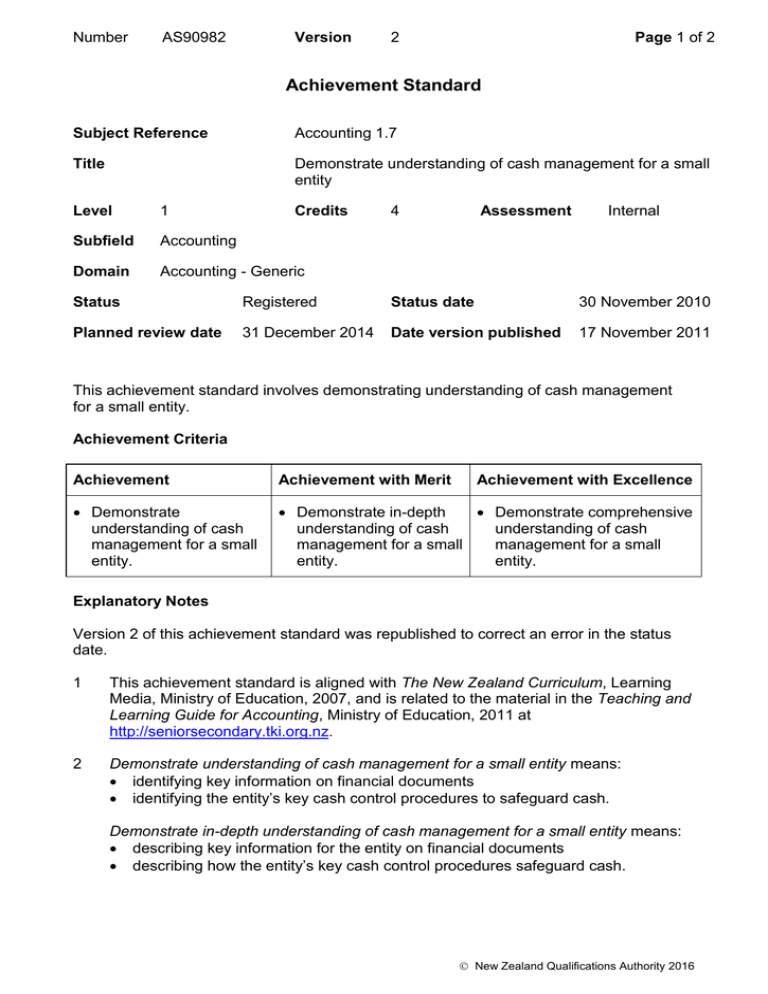
Number AS90982 Version 2 Page 1 of 2 Achievement Standard Subject Reference Accounting 1.7 Title Demonstrate understanding of cash management for a small entity Level 1 Credits Subfield Accounting Domain Accounting - Generic 4 Assessment Internal Status Registered Status date 30 November 2010 Planned review date 31 December 2014 Date version published 17 November 2011 This achievement standard involves demonstrating understanding of cash management for a small entity. Achievement Criteria Achievement Achievement with Merit Achievement with Excellence Demonstrate understanding of cash management for a small entity. Demonstrate in-depth Demonstrate comprehensive understanding of cash understanding of cash management for a small management for a small entity. entity. Explanatory Notes Version 2 of this achievement standard was republished to correct an error in the status date. 1 This achievement standard is aligned with The New Zealand Curriculum, Learning Media, Ministry of Education, 2007, and is related to the material in the Teaching and Learning Guide for Accounting, Ministry of Education, 2011 at http://seniorsecondary.tki.org.nz. 2 Demonstrate understanding of cash management for a small entity means: identifying key information on financial documents identifying the entity’s key cash control procedures to safeguard cash. Demonstrate in-depth understanding of cash management for a small entity means: describing key information for the entity on financial documents describing how the entity’s key cash control procedures safeguard cash. New Zealand Qualifications Authority 2016 Number AS90982 Version 2 Page 2 of 2 Demonstrate comprehensive understanding of cash management for a small entity means: explaining key information for the entity on financial documents explaining how and why the entity’s key cash control procedures safeguard cash. 3 A small entity may include – individuals, households, service businesses, trading businesses, farms, community organisations, schools. 4 Primary data collected by the student must be used for the financial documents and cash control procedures. 5 Assessment of the information on the entity’s financial documents includes four different types of documents which may be selected from: tax invoices credit notes discount vouchers statements of account credit card vouchers and statements cheques EFTPOS vouchers receipts bank statements pay slips Note: Documents may include online financial documents which may be submitted electronically. 6 The cash control procedures for both cash receipts and cash payments include: methods of safeguarding cash received and on hand methods of safeguarding different methods of payment a selection from: – knowledge of bank balance – keeping documentary evidence for future reference – other cash control procedures used by the entity. 7 Conditions of Assessment related to this achievement standard can be found at www.tki.org.nz/e/community/ncea/conditions-assessment.php. Quality Assurance 1 Providers and Industry Training Organisations must be accredited by NZQA before they can register credits from assessment against achievement standards. 2 Accredited providers and Industry Training Organisations assessing against achievement standards must engage with the moderation system that applies to those achievement standards. Accreditation and Moderation Action Plan (AMAP) reference 0233 New Zealand Qualifications Authority 2016

